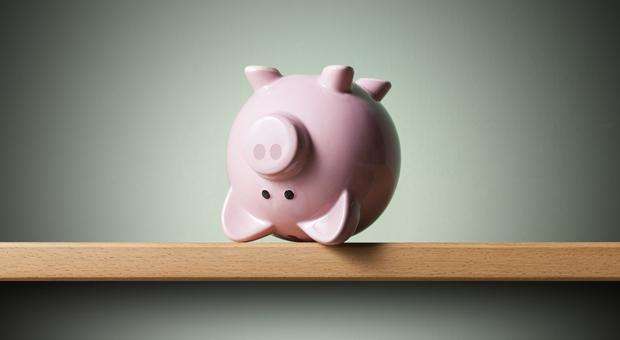The savings rate doubled in 2020. A consumption boom when the trade is opened is not expected, however.
In the 2020 corona year, Austrians spent less money than usual and saved all the more. The savings rate practically doubled in 2020 to 13.7 percent (OeNB) and 15.7 percent (Wifo). Billions of euros did not flow into private consumption, but were put on the high edge.
That this saved money will now be quickly spent again and stimulate the economy is unlikely, at least at the moment.
Forced saving and precautionary saving
The Oesterreichische Nationalbank (OeNB) has determined that “compulsory savings” due to the restrictions on consumption options in lockdown and “precautionary savings” due to the increased income uncertainty in 2020 lead to a sharp rise in the savings rate to 13.7 percent (+5.5 percentage points) and led to a slump in private consumer spending (minus 8.8 percent).
According to the experts at the Economic Research Institute (Wifo), the savings rate rose to 15.7 percent in 2020. During the year the savings rate even tripled for a short time.
https://grafik.apa.at/fastbuild/2021_05_0102-0702/0165-21/index.html?id=apa-0165-21&client=09t2hoik
No consumption boom
Wifo economist Josef Baumgartner does not expect a “consumption boom” despite the billions saved last year with the opening of stationary retail on Monday. Because on the one hand there are also households that had to release their reserves, if any, last year. This mainly affected the bottom third of the income, which suffered more from a loss of income due to short-time work or even unemployment.
And many pensioners did not have any loss of income, but in view of the risk of contagion in the corona pandemic, they would continue to withdraw more and more and thus not make or postpone their usual consumer spending.
According to Wifo experts, around 17 billion euros, which were also saved in the corona year, mainly by people in the upper half of the income, will probably not be pumped into the economy through increased consumption. Instead, Baumgartner expects normal spending behavior, as far as the circumstances – customer restrictions, mask and test obligations – allow. After the lockdown, many stores will lure with discounts to bring the goods on their full shelves to buyers. But “follow-up purchases” are not possible at all, for example during a failed skiing holiday during the Christmas holidays or if you missed a visit to the hairdresser in the past few weeks. Because you can't go to the hairdresser every day. And hotels and restaurants are still closed.
In the past year, many private individuals in Austria had already spent on better furnishing their apartment, house or garden. The new garden furniture or the renovated kitchen, electrical appliances or hiking equipment and bicycles will of course last longer than a year, so fewer expenses are to be expected here this year.
In the case of postponed vacations, some would have a preference for long-distance travel or vacation in the Mediterranean. The majority of Austrians on vacation usually go abroad in the summer. Those who have this holiday preference would prefer to wait even longer until their travel destinations are possible again, i.e. until summer or autumn, than to put the money into a holiday in Austria.

